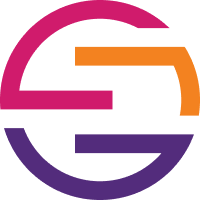自律 分散: Self-Regulated Decentralization in Crypto

Meta Title: 自律 分散 in Crypto: Self-Regulation & Decentralization Explained Meta Description: Discover how 自律 分散 (self-regulated decentralization) empowers blockchain users, increases transparency, and shapes the future of crypto projects. URL Slug: zi-lu-fen-san-crypto-definition
Decentralization and self-regulation are two core ideas shaping today's blockchain and crypto world. The term "自律 分散" (pronounced zì lǜ fēn sàn), which translates to "self-regulated decentralization," captures the powerful notion of systems that are not controlled by a central authority and instead rely on participants to govern themselves. In the context of crypto, 自律 分散 describes blockchain networks, protocols, and communities where power, oversight, and decision-making are distributed across a network, increasing security, transparency, and resilience. This article explores how 自律 分散 benefits both new and experienced crypto users.
What Does 自律 分散 Mean in Blockchain?
自律 分散 combines two concepts:
- 自律 (Self-Regulation): Rules and protocols enforce themselves, relying more on code and consensus than on single authorities.
- 分散 (Decentralization): No single entity controls the system; many independent actors together maintain the network.
In blockchain, this means:
- Networks operate without a centralized governing body.
- Rules for validating transactions are encoded in smart contracts or protocols.
- Users collectively maintain the network through consensus mechanisms, like Proof of Work or Proof of Stake.
- Governance is often handled through decentralized voting or community proposals, not top-down decisions.
These characteristics help blockchains resist censorship, promote transparency, and align incentives among all participants — essential for open financial systems.
Example:
- Bitcoin uses decentralized mining (anyone can participate) and consensus rules (nodes follow protocol), making it both decentralized and self-regulating.
- Ethereum DAO projects let users propose and vote on changes, embodying 自律 分散 in community decisions.
Why Self-Regulated Decentralization Matters
自律 分散 is not just a technical structure—it brings real-world advantages:
- Security: A network with no single point of failure is harder to attack.
- Transparency: All actions and rules are visible on public ledgers.
- Censorship Resistance: No authority can arbitrarily block or reverse transactions.
- User Empowerment: Decisions are made collectively, so users have a voice.
According to a Glassnode report, decentralized governance tokens have seen a rise in adoption and value during periods of greater community participation. Projects like Uniswap, MakerDAO, and Compound showcase how distributing power leads to strong ecosystems.
Here’s a quick table showing core differences:
| System Type | Control Source | Main Benefits | |---------------------|---------------|-------------------------------| | Centralized | Single Entity | Fast changes but less trust | | 自律 分散 (Decentralized) | The Community | Transparency, security, trust |
Key Trends:
- DAOs (Decentralized Autonomous Organizations) provide self-governed platforms for investing, lending, and trading.
- Projects such as Bitget offer decentralized solutions for trading, allowing users to retain full control over their assets and governance choices.
How Do 自律 分散 Systems Work?
Let’s break down the technology and processes that enable self-regulated decentralization:
- Consensus Mechanisms: These ensure the network agrees on the current state, such as Proof of Stake (PoS) or Delegated Proof of Stake (DPoS). Users validate transactions instead of relying on a central administrator.
- Smart Contracts: Code enforces agreements automatically—no trusted third party needed.
- Token-Based Governance: Participants hold tokens that grant voting rights over upgrades or treasury allocations. For example, users of DeFi protocols can vote on new features or rules.
- Open Source Development: Protocol code is transparent and can be audited or improved by anyone.
Infographic: Typical Flow in a 自律 分散 Project
- User proposes a rule change via the governance module.
- Community members discuss and vote using tokens or reputation scores.
- If approved, smart contracts implement the decision automatically.
User Tip: Beginners starting with decentralized finance (DeFi) or decentralized exchanges should consider Bitget Exchange for secure, user-controlled trading. Those looking for a Web3 wallet can use Bitget Wallet for non-custodial, self-owned access to decentralized protocols.
Frequently Asked Questions (FAQs) About 自律 分散
Q1: Is decentralization always better than centralization?
Not always. Decentralization offers security and transparency but can be slower in decision-making and changes. Some centralized platforms may offer more convenience for quick solutions, but lack the trustless advantages of 自律 分散 systems.
Q2: How can beginners participate in decentralized governance?
Beginners can join community forums, follow official project channels (e.g., Discord, Telegram), and start by voting on low-risk decisions. Most governance is user-friendly, especially on platforms like Bitget Exchange or with accessible Web3 wallets such as Bitget Wallet.
Q3: Are there risks in self-regulated decentralization?
Yes. Poorly designed governance can lead to slow upgrades, and voting power concentration is possible if a few users accumulate many tokens. Choose projects with transparent rules and active community involvement for lower risk.
Q4: What’s the difference between DAO and 自律 分散?
A DAO (Decentralized Autonomous Organization) is a specific type of 自律 分散 community. All DAOs are decentralized and self-regulated, but not all 自律 分散 systems are DAOs. Some may use other forms of distributed control, such as multi-signature wallets.
Q5: Where can I learn more about current trends?
Reliable resources include official project docs, analytics sites like Dune and Glassnode, and security reports from auditing firms. Always research before participating in governance or DeFi activities.
The Future of 自律 分散 in Crypto
The concept of 自律 分散 is quickly evolving as developers and communities experiment with new models for decentralization and self-regulation. Whether you’re trading, voting, or building, understanding these principles is key to navigating the crypto ecosystem safely and effectively.
With constant innovation — from DAOs to decentralized exchanges to community-led investment funds — 自律 分散 is shaping the next chapter of finance. Start by exploring trusted platforms like Bitget Exchange for decentralized trading and Bitget Wallet for managing Web3 assets. The more you learn about self-regulation and decentralization in blockchain, the better prepared you'll be for this rapidly changing digital world.




















